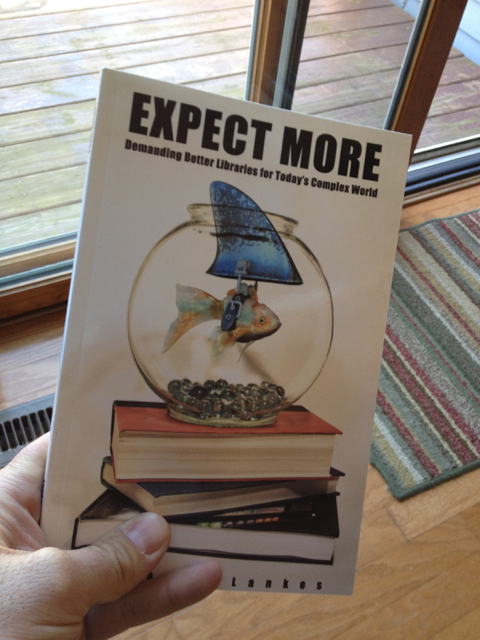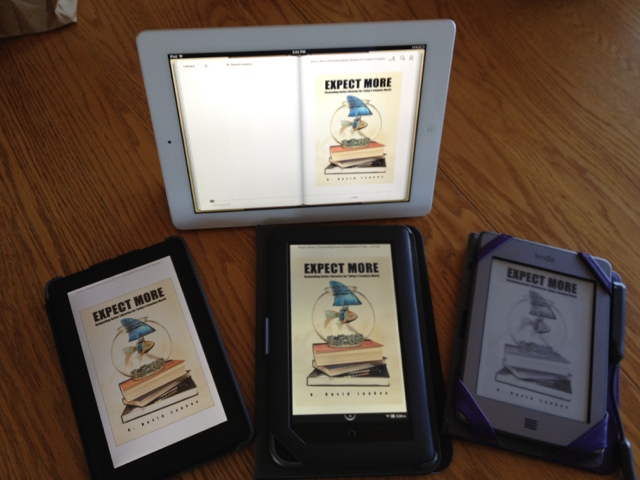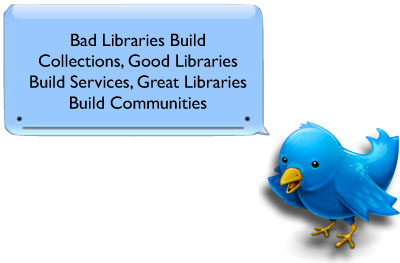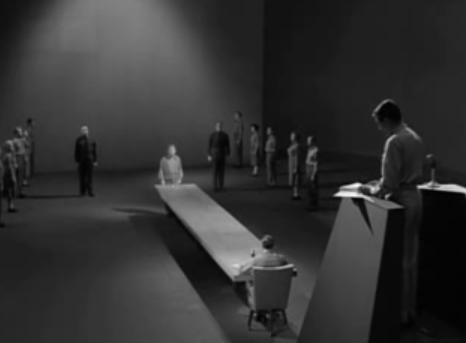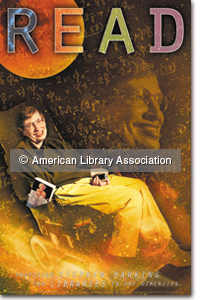Here is the tweet that led to this post:
“Bad Libraries build collections. Good libraries build services (of which a collection is only one). Great libraries build Communities”
Due to character limits it was often re-tweeted without the parenthetical:
“Bad Libraries build collections. Good libraries build services. Great libraries build Communities”
Let’s face it, this is snappier, but it is also apparently more controversial. There were a number of responses along the line that good and great libraries must build collections too. I thought it was worth more than 140 characters to add some nuance and depth to the tweet, so here we are.
Before I jump all the way in here…if you are an auditory or visual type, I made a lot fo these points in this screencast:
https://davidlankes.org/rdlankes/blog/?p=1406
Now, back to the tweet.
First, there is nothing that says that good and great libraries don’t or can’t build collections. It is a matter of focus. If librarians focus solely or disproportionately on the collection, that is bad. This shows up in a couple of ways. The first is obvious: acquisitions with little or no input from members of the community. Are you adding to a collection because of what is on the New York Times bestsellers, or that’s what the jobber sends? Bad. If you aren’t looking at circulations data, having conversations with the community, or looking at ILL data: bad.
I am reminded of this in the current debate around ebooks. There is a lot of talk about whether libraries should be buying ebooks at all. Someone asked me what I thought and I said that tactically librarians should build their own ebook platform that brings a lot of value to authors, and; two, ask your community. If you are planning on boycotting or simply staying out of ebooks, have you had that conversation with the communities? Does the community think it is a bad deal what the publishers are proposing? Are they ok with not having that as a library service? Note this is not simply asking meekly, but truly having a conversation where you are presenting an argument and showing the community the big picture and then listening.
If we are talking focus, what is the difference between bad libraries and good ones? Good libraries focus on users. That is they evaluate the utility of the collection is relation to user needs. What do people want and need in terms of the collection, and how does that balance with all the other things the library does (reference, programming, digital resources, instruction, etc.). Here not only do we look at user data such as circulation and such, but the whole user experience.
There was once a debate among the faculty here at Syracuse about where we should teach collection development. It was (and is) part of a class title “Library Planning, Marketing, and Assessment.” The instructor at the time didn’t like it there. How do weeding and marketing go together? Well, it turns out the questions you ask about the collection are like any other service: what are the objectives? How is it used? Is it easy to access (and assess)? The collection is a service like any other – it needs budgeting, planning, and a reason to exist.
Good libraries understand that any time you add value to a user experience you are proving a service. Shelving? Service. Cataloging? Service. Weeding? Service (to save the user time and eliminate rapid access to out of date information). I know all of these things are wrapped up as “collection,” but by breaking them apart you can better evaluate them, and better accomplish them.
I pick the term “user” carefully in this part of the discussion, because I believe it is what separates good from great. You see a good library sees the collection as a service and therefore monitors and plans for its use. A great library sees the collection as only a tool to push a community forward, and more than that, they see the library itself as a platform for the community to produce as well as consume. The library member co-owns the collection and all the other services offered by the librarians. The library services are part of a larger knowledge “eco-system” where members are consuming information yes (a user), but also producing, working, dreaming, and playing. That is the focus of a great library. They understand that the materials a library houses and acquires is not the true collection of a library – the community is.
So, do good, bad, great, and ugly libraries have collections? Yes. But great libraries realize that the collection is not what sits on the stacks, but the members and their worlds. The focus is on connection development, not collection development. Will there be collections developed? Probably, but that collection may be of links, digital scans, books, building materials, video production equipment, performance time on a stage, and/or experts.
This is clear in the discussion around school libraries. As districts around the country are eliminating school librarians they often cite that the hours of the library won’t go down. “We can keep the doors open with library aids, or existing staff in the building.” They ignore the data that shows that it is certified school librarians, not open hours, or the collection, that improves test scores and student retention. Librarians not libraries make the difference.
Once again, does the school librarian use a collection? Certainly, but great school librarians have a collections of lessons they teach, student teams that assist teachers with technology, and collections of good pedagogy. Want to save money in a school? Close the library and hire more school librarians.
This tweet is not a call to throw out collections of materials – there is great value there – but to change focus and realize that that value comes not from the artifacts, but the community’s ability to improve. That value may come from licensed databases in academia. It may come from shipping containers full of paper books in rural Africa. It may come from genealogy materials in the public library, or special collections in the Ivy League. But for some communities it may come from the rich array of open resources accessible via any smartphone, or, increasingly, artifacts, ideas, and services created by the community itself.
Great libraries can have great buildings, or lousy buildings, or no buildings at all. Great libraries can have millions of volumes, or none. But great libraries always have great librarians who engage the community and seek to identify and help fulfill the aspirations of that community.
